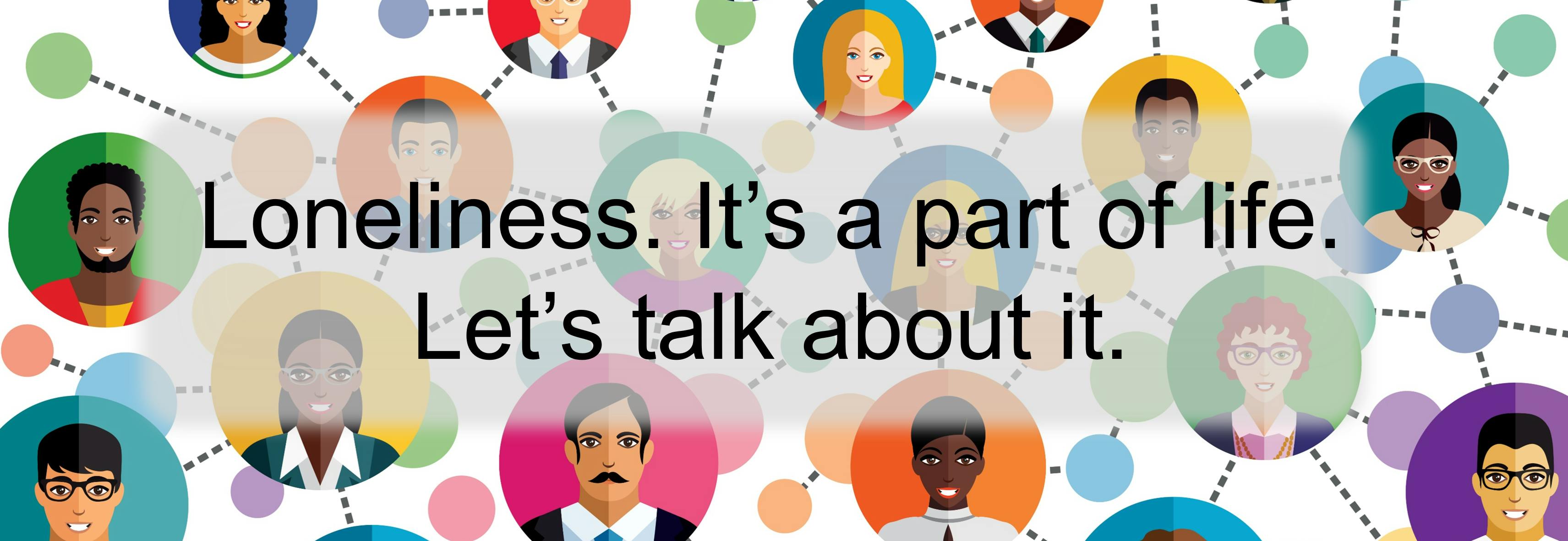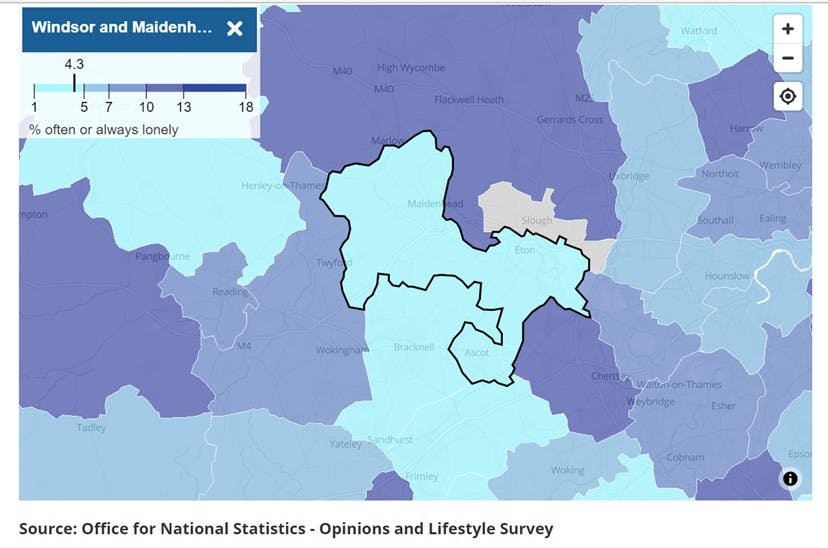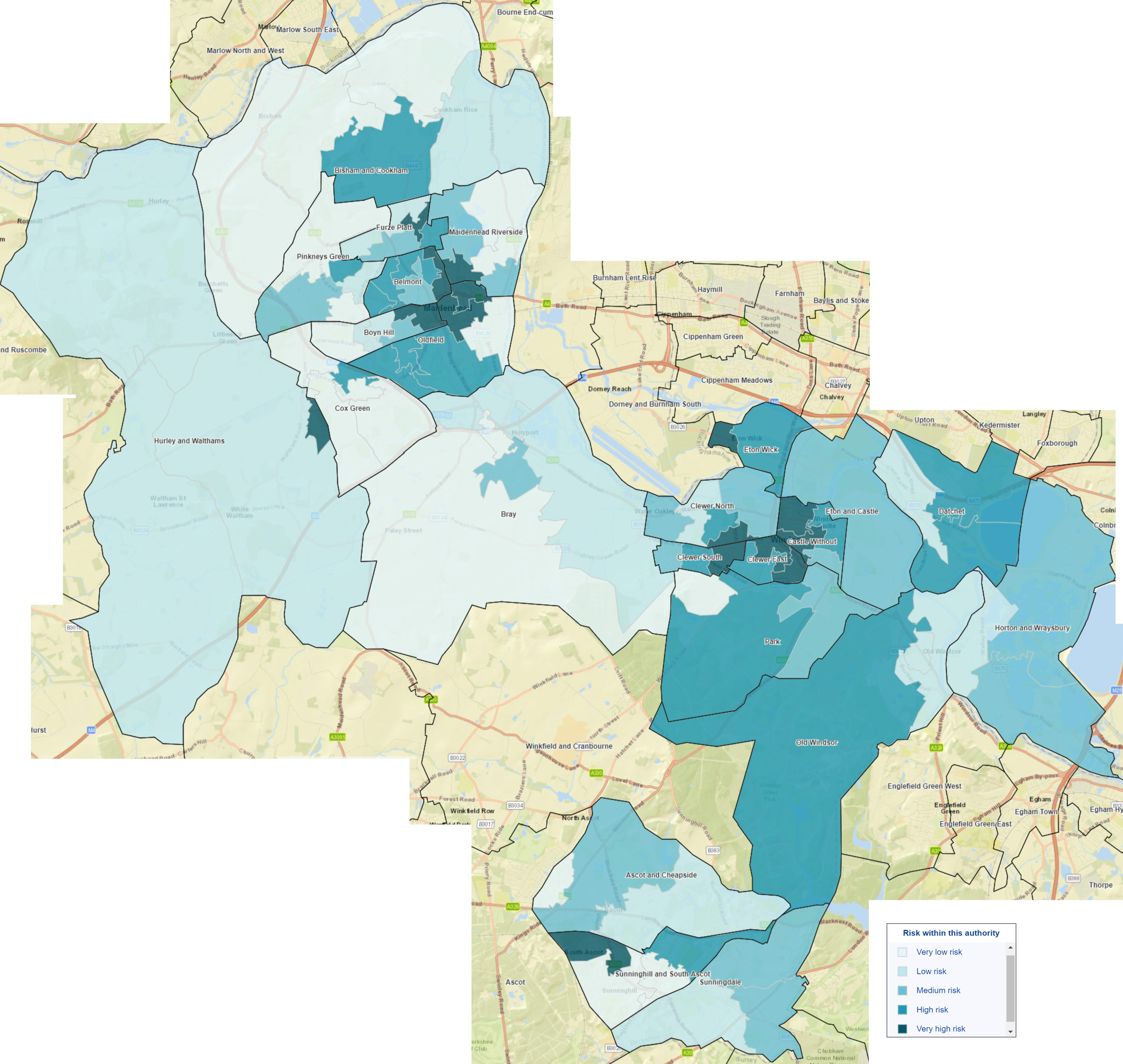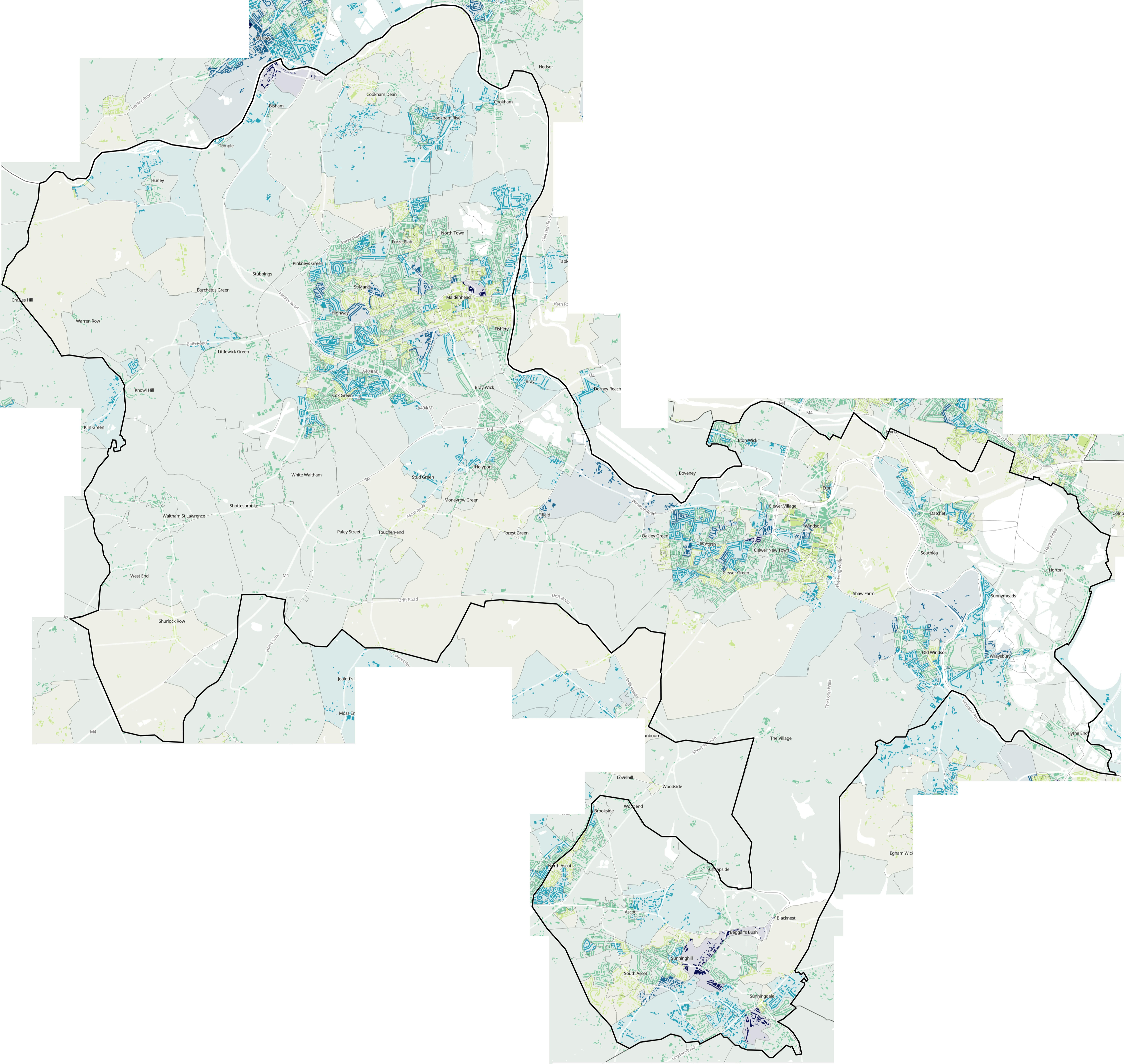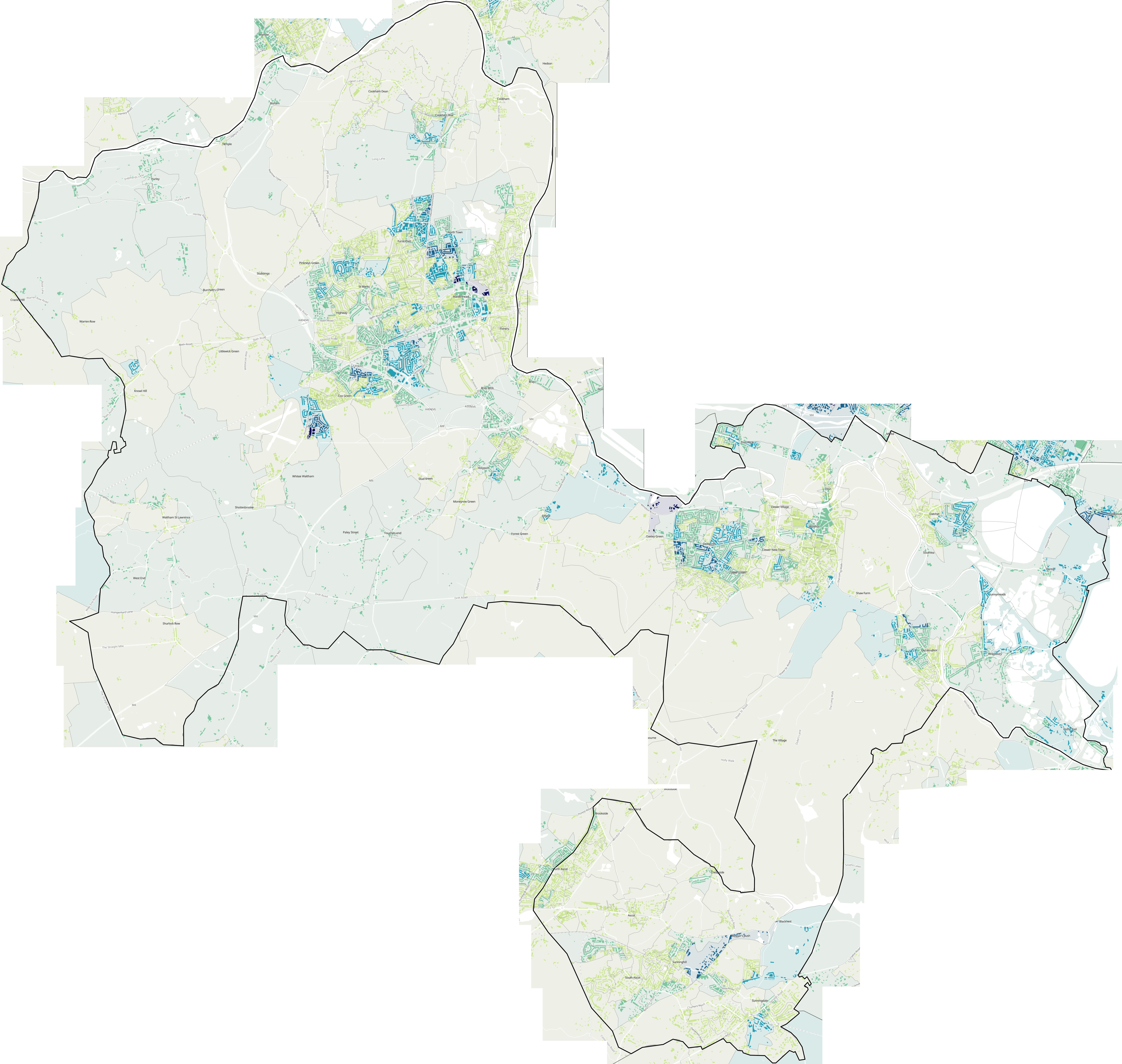Community Connections: Loneliness & Social Isolation
Loneliness & Social Isolation in the Royal Borough
Most people feel lonely sometimes, for many different reasons. If loneliness is affecting your life, there are things you can try that may help.
Support is also available if you're finding it hard to cope with stress, anxiety or depression.
Loneliness can affect anyone of any age and background and is increasingly understood to be a serious condition that adversely affects our mental and physical health.
Due to its complex nature, understanding what contributes to people in the borough feeling lonely and deciding which approaches or interventions work best to address this is challenging.
The terms loneliness and social isolation are often used interchangeably, and while there is overlap between them each has a distinct meaning and independent impacts on our health and wellbeing.
What is loneliness?

What is social isolation?

___________________________________________________________________
Loneliness & Social Isolation. Let's Talk About It.
What should I do if I'm feeling lonely?
There are lots of different things that can trigger loneliness but it is important to remember that most people feel lonely at some point in the lives. You shouldn't blame yourself or feel embarrassed, loneliness can be very personal but these feelings can pass.
Useful resources, including advice and information can be found via the links below.
- Get help with loneliness - NHS
- Loneliness and mental health - MIND
- Self-esteem - MIND
What should I do if I'm feeling socially isolated?
There are lots of different things can can trigger loneliness but it is important to remember that most people feel lonely at some point in the lives. You shouldn't blame yourself or feel embarrassed, loneliness can be very personal but these feelings can pass.
Useful resources, including advice and information can be found via the links below.
- Wellbeing Circles - Supporting your independence
- Home Library Service
- People to Places - Community Transport
What should I do if I'm worried that someone might be lonely or socially isolated?
- It is important to remember that somebody can feel lonely despite having lots of social interactions or have very few social interactions but not feel lonely. Helping someone who is lonely or isolated may not be easy and we may not be able to solve all of their issues all at once. Supporting people can take time and may take multiple conversations or interactions.
Certain life events, like bereavement, unemployment, health conditions, parenthood, and moving house may trigger temporary or longer-term loneliness and/or isolation. It's important to remember that these feelings may be temporary - reminding people that you're there for them and checking in with them every now and then can really help.
There is often a stigma attached to those who feel lonely or isolated so don't be surprised if some people reject your concerns. Try not to ambush people with difficult conversations, they may not be ready to talk about how they're feeling.
- Remember, there is no right way for someone to live their life! People can have a small social circle and not feel lonely or isolated - it's all personal preference!
- Visit our dedicated page to learn more about how to be a good neighbour.
- You can find other useful advice on the Age UK website.
___________________________________________________________________
Community Stories
 Claire's StoryClaire* had been experiencing anxiety and stress due to her role as her husband's carer. Because of health problems, neither Claire or her husband were able to drive and this made tasks such as shopping, walking their dog and staying connected to the community difficult.
Claire's StoryClaire* had been experiencing anxiety and stress due to her role as her husband's carer. Because of health problems, neither Claire or her husband were able to drive and this made tasks such as shopping, walking their dog and staying connected to the community difficult.
Claire was referred to Maidenhead United FC Community Trust (Magpies), who visited Claire to help support her and her husband.
To begin, Claire didn't feel confident about online shopping but was willing to try and learn. Magpies matched her with a volunteer who visited a number of times and helped Claire become more confident about ordering her weekly shop and also supported Claire's husband to set up a new mobile phone.
The volunteer also helped the couple set up a "Borrow My Doggy" profile and signposted them to a pet charity, Cinnamon Trust, to get additional support for their lovely dog, Barney.
To help with their transport issues, which were causing the couple to feel socially isolated, the Magpies signposted Claire to People to Places to help with transport to medical appointments.
Since Claire's husband's social life had been reduced by his health problems, the volunteer also researched and signposted the couple to joint activities that they could take part in, including: Ascot Day Centre, a lunch club in Bracknell, U3A and a referral to the afternoon tea meet-ups run by Re:Engage.
Claire said: "Lucy (Magpie volunteer) has been absolutely marvellous and she has made such a difference to our settling in to our new way of life following my husband’s illness."
 Will's Story Will* was referred to Social Prescribers by his GP after he said that he felt lonely and isolated despite living in sheltered accommodation. Will felt that he didn't have any friends. Due to illness, Will found it difficult to talk and this made it hard to communicate with people. He had also had to move house and had lost contact with many of his friends and groups from where he lived previously.
Will's Story Will* was referred to Social Prescribers by his GP after he said that he felt lonely and isolated despite living in sheltered accommodation. Will felt that he didn't have any friends. Due to illness, Will found it difficult to talk and this made it hard to communicate with people. He had also had to move house and had lost contact with many of his friends and groups from where he lived previously.
Since Will really enjoyed art and gardening and wanted to find groups that supported these interests, Social Prescribers were able to help Will connect with Nature's Haven and Friends in Need. These connections meant Will was able to take part in gardening twice a week at Nature's Haven and attend an art group at Friends in Need once a week.
Not only did these activities make Will feel happier and more positive, he was also able to make new friends and renew an old friendship with someone he had lost touch with. Making new friends and connections encouraged Will to take part in other activities run by the same group and he is now part of their WhatsApp group.
 Irene's Story
Irene's StoryIrene* is nearly 100 years old and is still living in her own home. Once she was connected with the Magpie volunteers they discovered that she loved the idea of weekly befriending visits to her home as she enjoyed "stimulating chats". However, getting out of the house was difficult for her as she required a wheelchair.
Magpies linked Irene with Good Gym who were able to support her with ongoing weekly visits so she could chat to someone. The Magpie volunteers also connected Irene with St Peter's Lunch Club in Maidenhead who were able to help her with transportation to their club where she enjoyed a home-cooked 3-course meal which Irene said was "the best meal she'd ever eaten".
Magpies were also able to help Irene with digital accessibility by helping her to use her tablet to get online. Irene had been given a brand new tablet by her son but struggled to use it - Magpies taught her to use email, how to listen to podcasts and how to explore YouTube!
Irene said: "Ash (Magpies volunteer) is wonderful. He is a natural teacher, so patient and professional."
 Brooke's StoryBrooke was referred to Social Prescribers by a Practice Nurse after saying that she felt socially isolated and wanted to do more exercise. Brooke met with the Social Prescriber several times to discuss ideas about the types of groups and activities that she could get involved with. However, because Brooke lacked confidence it took a while for her to take the next step and reach out to a group. With the support of her Social Prescriber, Brooke was able to overcome her anxieties and find the right fit with an art group that provides a space for creative activities. Brooke was also able to research local groups with her Social Prescriber and eventually found a walking group to help her with her desire to get more exercise.
Brooke's StoryBrooke was referred to Social Prescribers by a Practice Nurse after saying that she felt socially isolated and wanted to do more exercise. Brooke met with the Social Prescriber several times to discuss ideas about the types of groups and activities that she could get involved with. However, because Brooke lacked confidence it took a while for her to take the next step and reach out to a group. With the support of her Social Prescriber, Brooke was able to overcome her anxieties and find the right fit with an art group that provides a space for creative activities. Brooke was also able to research local groups with her Social Prescriber and eventually found a walking group to help her with her desire to get more exercise.* Although these stories are true, the names of the people involved have been changed to protect their privacy.
